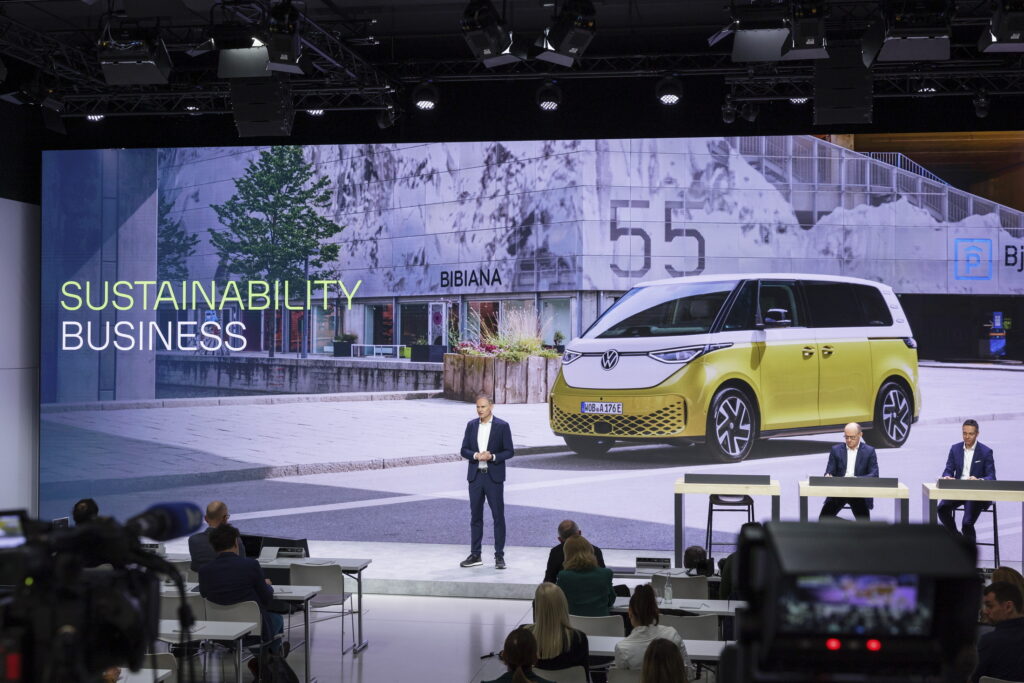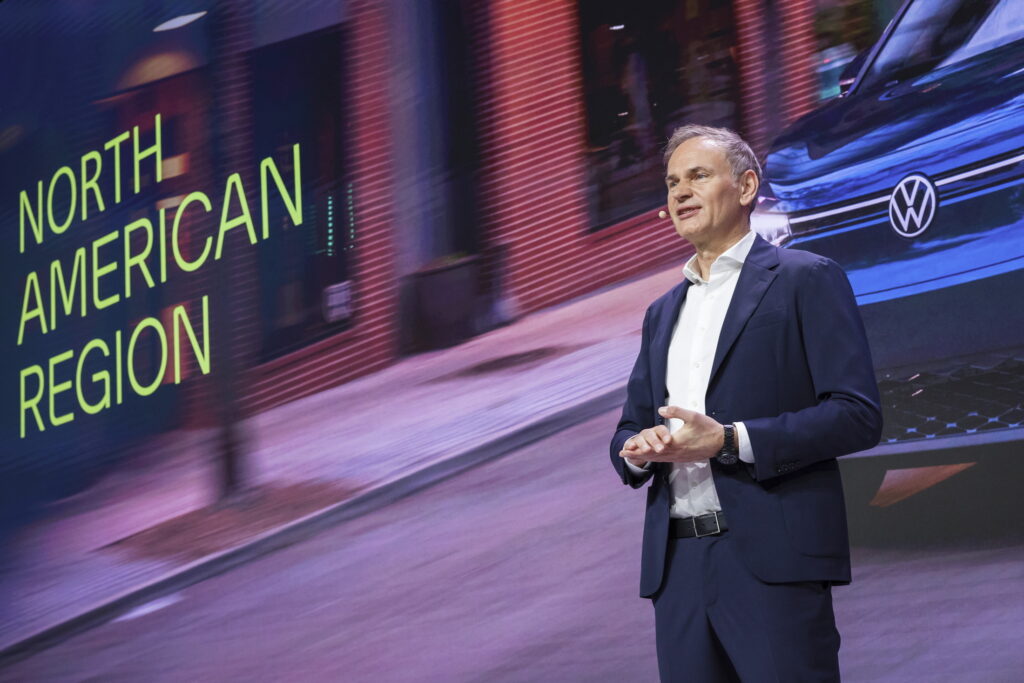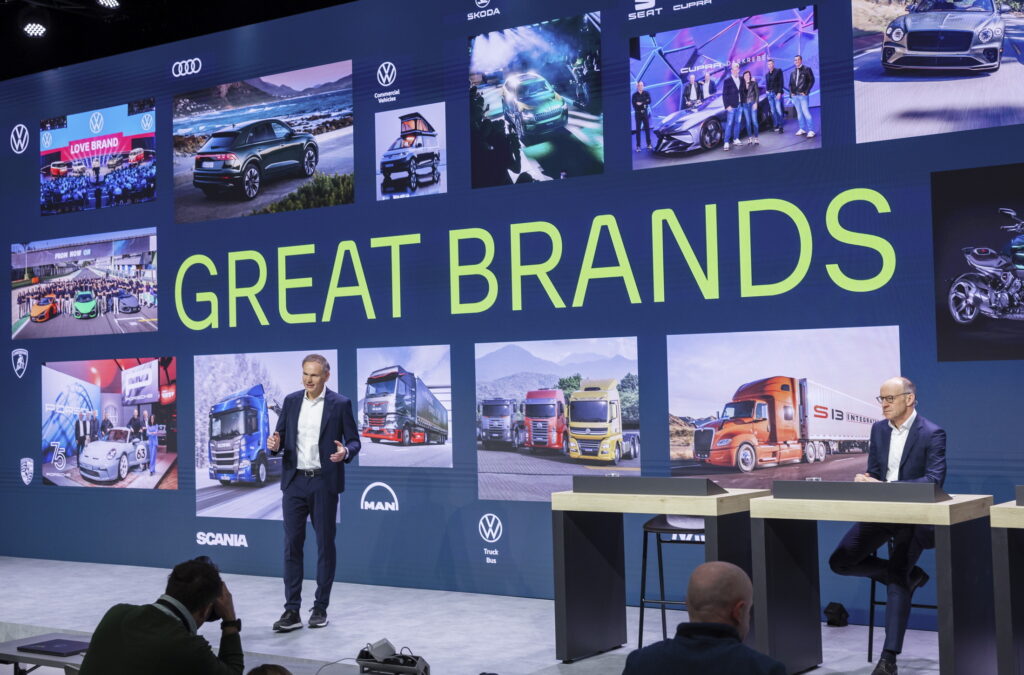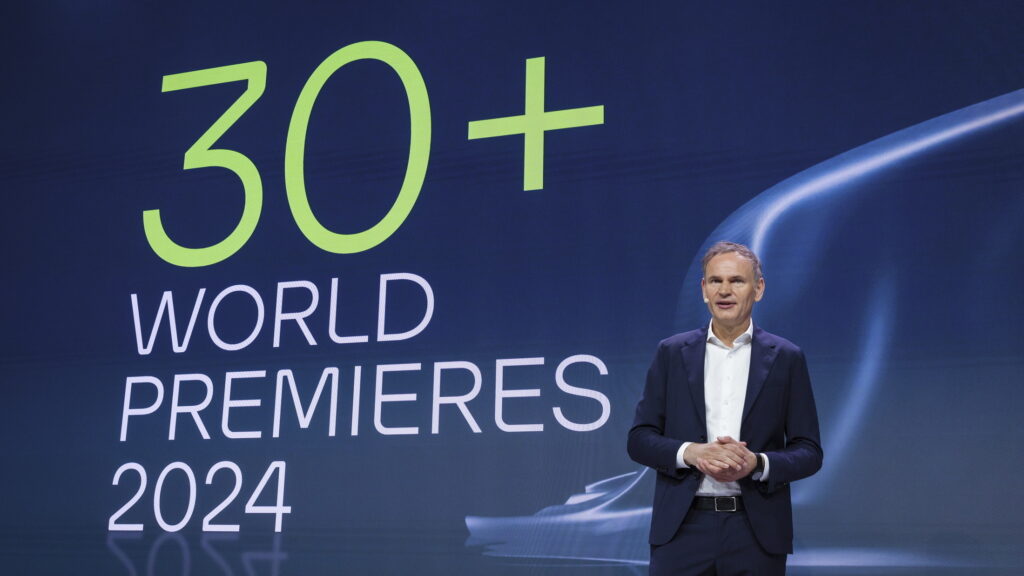The Volkswagen Group’s CEO, Oliver Blume, has big plans for the future, as he prepares for a record-breaking 2024. The automaker hopes to outperform the market thanks to a tidal wave of new products that it will introduce around the globe.
In all, Volkswagen will launch a total of 30 new or updated vehicles spread across its many brands this year. That includes new Porsches like the Macan, new Audis like the Q6 e-tron, new VWs like the ID.7, and updates to a range of models, like the Golf, the Tiguan, the Passat, the Skoda Superb, and more.
Although the automotive giant predicts that 2024 will be a turbulent year for the auto industry, it will lean on new models to increase sales by 3 percent this year. While that’s less than it grew in 2023, the group’s finance chief, Arno Antlitz, said at a recent presentation of its finances that the group is “confident about 2024.”
And growth will be helped by new EVs that, despite difficult results in that segment, the group is maintains confidence in. Although sales growth in the segment slowed at the end of 2023, Blume said that EVs are “the future. Period,” per Autonews. Unlike other automakers that have walked back their commitments to electric vehicles, VW has made no such announcements, though the CEO did hedge, saying that the company is “flexible enough to adapt to changes in different markets.”
Read: Mercedes Latest Automaker To Slow EV Push, Will Keep ICE Alive Into The 2030s

And changes are coming. While the company has said that it is prepared for sales to continue shrinking in China, it is looking to North America — and, in particular, the U.S. — to drive sales growth.
Antlitz said that North American has the potential to become Volkswagen’s biggest growth market. Indeed, the automaker’s sales improved by more than 9 percent in 2023, and it hopes they will grow by 22 percent in 2024.
To achieve that, the head of the Volkswagen Group of America, Pablo di Si, told Autonews that the core brand plans to stick to its EV plans — the ID. Buzz and the ID.7 sedan will soon join the ID.4 — but it may also turn to plug-in hybrids.
Di Si noted that the new Tiguan PHEV is of great interest to him, and added that the fact it is based on the MQB platform, means that the technology could easily be adapted “to another SUV if we want to.” The Atlas, which is made at the automaker’s Chattanooga, Tennessee, plant, is based on the MQB platform.

Affordable EV still on the table
Looking further down the road, Blume said that Volkswagen is still considering making an entry-level EV with a €20,000 (around US$21,800 at current exchange rates) starting price. Code-named the ID.1, he said the company is open to working with partners to make it happen. Indeed, reports indicate that the automaker is in talks with Renault to co-develop the affordable EV.
To be sure, collaboration was a feature of Blume’s vision for the future. In addition to Renault, the automaker is also working with Xpeng in China to help it become more relevant to the nation’s buyers and to claw back some market share.
Collaboration within the group is also important. Blume said that VW’s many brands are working more closely together than ever to help drive innovation and cost savings. The Audi and VW brands are also working with Cariad, the group’s software division, to get its innovations onto the road faster.
Plagued by difficulties, and in the hole for €2.4 billion (US$2.6 billion) in 2023, fixing the unit has been one of Blume’s biggest tasks. Now, clear goals have been set for it, including near-term product plans. The division also hopes to get software defined vehicles on the road by 2028. It believes that SDVs will breed brand loyalty and reduce development costs, while generating as much as $1.5 trillion in extra revenue by 2030.





